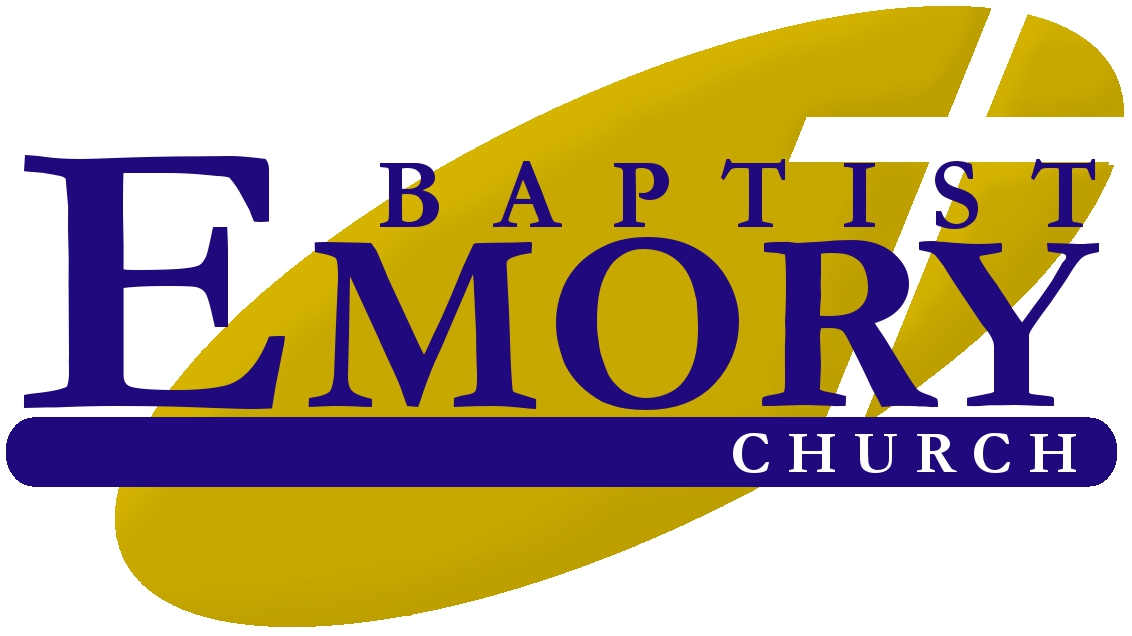Episodes

Sunday Apr 24, 2022
Has It Been Too Long for God to Act?
Sunday Apr 24, 2022
Sunday Apr 24, 2022
The last time we were in John’s gospel was two weeks ago, and we were at the end of chapter 5. Jesus demonstrated that He was Lord over distance by healing the nobleman’s son that He couldn’t see and couldn’t touch but physically healed.
If you remember, the book of John is built around seven (7) signs that Jesus performed so that peopled would believe in Him as the Promised Messiah. Healing the nobleman’s son was the second sign. Again, it showed us that Jesus was Lord and Master over distance.
Do you remember the first sign? Jesus’ first sign in John’s gospel was turning the water to wine at the wedding in Cana. That is found in John 2. What did that sign show us? It showed us that Jesus can bring something from our nothing.
Today, we are back in Jerusalem for the third sign. Keep this question in mind, “Has it been too long for God to act?”
- An Unusual Situation, John 5:1-4
1 After this there was a feast of the Jews, and Jesus went up to Jerusalem. 2 Now there is in Jerusalem by the Sheep Gate a pool, which is called in Hebrew, Bethesda, having five porches. 3 In these lay a great multitude of sick people, blind, lame, paralyzed, waiting for the moving of the water. 4 For an angel went down at a certain time into the pool and stirred up the water; then whoever stepped in first, after the stirring of the water, was made well of whatever disease he had.
The very first words of chapter 5 serve as a time marker and seem to refer to the events of chapter 4. However, in reality, they let us know that John’s gospel is not necessarily laid out chronologically as the other gospels are.
However, we know that Jesus was now on His way back to Jerusalem. John also mentions that there was a feast going on at the time. However, he doesn’t specifically identify it. That lets us know that this story is not tied to the specific feast, but it certainly could have been the Passover.
Notice verse 2. Jesus could have entered the actual city in a myriad of different ways but intentionally chose to go by this pool near the Sheep Gate. What was a sheep gate? It was the gate where the sheep came in before they were sacrificed.
At this gate was a pool. It was called Bethesda, which meant house of mercy. That was an appropriate name as there were many sick who had gathered there hopefully to be healed.
Verse 3 says the sick were there. The blind were there. The lame were there. The paralyzed were there all waiting for the waters to be moved or stirred.
It seems that local superstition credited an angel of the Lord with stirring the waters, and whoever was in the water first after the stirring was healed from whatever disease. We don’t know if this is true, but it appears to be local belief.
In reality, this was probably and intermittent spring. Every so often, the waters were stirred, and legend attributed it to angels that provided healing through the waters.
By the way, if you claim that you want to a little Christ or that you want to be more like Jesus, take note of this story. As I said previously, Jesus could have entered Jerusalem in any way He desired, and He desired to enter where the sick were, and I can assure you, they were not pleasant to see.
Secondly, you will see in just a minute that He spoke to a sick man personally and compassionately. He didn’t preach to him. He didn’t correct his wrong theology. He asked him if he wanted to be made well.
Thirdly, He offered specific help for this specific man. He met the most pressing need that this man had.
Jesus was compassionate and helped those in need. This was an unusual situation.
- An Unceasing Sickness, John 5:5-9
5 Now a certain man was there who had an infirmity thirty-eight years. 6 When Jesus saw him lying there, and knew that he already had been in that condition a long time, He said to him, “Do you want to be made well?” 7 The sick man answered Him, “Sir, I have no man to put me into the pool when the water is stirred up; but while I am coming, another steps down before me.” 8 Jesus said to him, “Rise, take up your bed and walk.” 9 And immediately the man was made well, took up his bed, and walked. And that day was the Sabbath.
Here at Bethesda was a certain man with an infirmity who had been sick for thirty-eight years. I can’t even imagine that. I have read that the average life-span for first century males in the Roman Empire was less than 40 years. In other words, this man had probably been sick his entire life.
We aren’t told about his sickness other than he couldn’t walk or at least couldn’t walk very fast. Otherwise, we don’t know any more specifics.
In verse 6, Jesus saw this man and knew of his condition, and He inquired as to his desire for healing. We don’t know if Jesus knew of him out of His omniscience or He overheard some people talking about him. Regardless, He make sure that this man recognized his own need.
In verse 7, this man expressed his dire situation. Whenever the waters were stirred, he had no one to help him get in the water. Therefore, his sickness and condition was unceasing for thirty-eight years.
Then out of no where, Jesus gave him three commands in verse 8: rise, take up your bed, and walk.
Can you imagine what that man began to feel as immediately his body was healed? He obeyed and did exactly what Jesus told him to do. He had been completely healed.
Verse 9 ends with a small fact that had massive ramifications. Jesus healed this man on Saturday, the Sabbath. As you are about to see, that was a problem.
- An Unreasonable Standard, John 5:10-15
10 The Jews therefore said to him who was cured, “It is the Sabbath; it is not lawful for you to carry your bed.” 11 He answered them, “He who made me well said to me, ‘Take up your bed and walk.’” 12 Then they asked him, “Who is the Man who said to you, ‘Take up your bed and walk’?” 13 But the one who was healed did not know who it was, for Jesus had withdrawn, a multitude being in that place. 14 Afterward Jesus found him in the temple, and said to him, “See, you have been made well. Sin no more, lest a worse thing come upon you.” 15 The man departed and told the Jews that it was Jesus who had made him well.
Don’t you know that the news of this man being healed spread like wild fire? After all, he had been sick for thirty-eight years.
I speculate that he was well-known simply because of how long he had been sick. Consequently, I also speculate that his healing was well-known too.
In verse 10, the Jews began to question this man about carrying his bed or matt. Isn’t it interesting that they didn’t question his healing?
They wanted to know why he was breaking tradition. That’s right. He wasn’t breaking the OT Law. He was breaking oral tradition.
By the way, this is what is known as legalism. When you or I add elevate our personal preferences or personal applications of God’s Word to the same level and authority as God’s Word, we are guilty of legalism. That is what was happening here.
In verse 13, they wanted to know who this healer was. However, the man didn’t know because Jesus didn’t tell him, and Jesus slipped away into the crowd.
These Jews had unreasonable standards of behavior. He wasn’t carrying his bed in an effort to work. He was carrying his pallet out of necessity because he had been healed.
In 5:14-15, we find Jesus and the healed man in the temple. Why was the healed man there? We aren’t told.
However, we do get a small glimpse into the possible reason for his sickness. Jesus appears to tell him to stopping sinning so that nothing worse would happen to him.
By the way, was Jesus linking this man’s sin to his sickness? Is it possible that our sin causes sickness? Well, it is possible. See 1 Corinthians 11:29-30.
29 For he who eats and drinks in an unworthy manner eats and drinks judgment to himself, not discerning the Lord’s body. 30 For this reason many are weak and sick among you, and many sleep.
However, it is not an absolute. See John 9:1-4.
1 Now as Jesus passed by, He saw a man who was blind from birth. 2 And His disciples asked Him, saying, “Rabbi, who sinned, this man or his parents, that he was born blind?” 3 Jesus answered, “Neither this man nor his parents sinned, but that the works of God should be revealed in him. 4 I must work the works of Him who sent Me while it is day; the night is coming when no one can work.
Also, because this man’s physical healing is a picture of spiritual healing, the Saved shouldn’t be continuing to live in sin. For those who are saved this morning, stop sinning.
Then finally, if this man doesn’t stop sinning, hell is going to be a worse state than his inability to walk. He wasn’t able to walk for 38 years. He would be in hell for eternity.
In 5:15, the man goes away and tells the Jews that it was Jesus who had healed him.
Application and Conclusion
When we think about the main idea of this text and the meaning of this third sign, I want to be clear. Jesus is Lord over time. That is the main idea of this text. There are certainly many truths this story teaches and addresses, but the main idea is singular.
First, and obviously, Jesus is Lord over time, and God can heal you physically today regardless of how long you have been sick. My encouragement to you is ask or pray.
Second, this story symbolizes more than physical healing. It points to spiritually healing as well. Jesus is Lord over time, and God can heal you spiritually today regardless of how long you have been lost. My encouragement to you is to believe. Believe in Jesus Christ as Lord and Savior after you recognize your need to be saved.
Finally, and perhaps more appropriately for many in the room, Jesus is Lord over time, and God can heal you emotionally today regardless of how long you have been hurt. My encouragement to you is to forgive.
Regardless of whether you are sick, lost, or hurt, Jesus is Lord over time, and it hasn’t been too long for God to act. Today, He can heal. Today, He can save. Today, He can restore.


No comments yet. Be the first to say something!